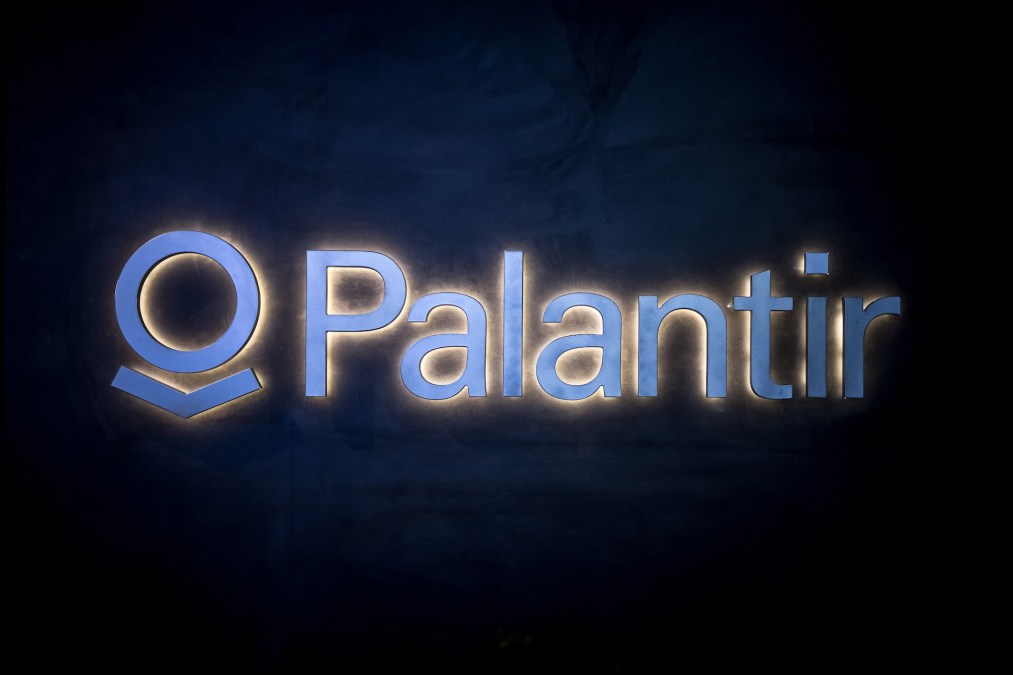NATO inks deal with Palantir for Maven AI system

NATO announced Monday that it has awarded a contract to Palantir to adopt its Maven Smart System for artificial intelligence-enabled battlefield operations.
Through the contract, which was finalized March 25, the NATO Communications and Information Agency (NCIA) plans to use a version of the AI system — Maven Smart System NATO — to support the transatlantic military organization’s Allied Command Operations strategic command.
NATO plans to use the system to provide “a common data-enabled warfighting capability to the Alliance, through a wide range of AI applications — from large language models (LLMs) to generative and machine learning,” it said in a release, ultimately enhancing “intelligence fusion and targeting, battlespace awareness and planning, and accelerated decision-making.”
Neither party commented on the terms of the deal, but it was enough to drum up market confidence in Palantir, whose stock rose about 8% Monday morning. NATO, however, said the contract “was one of the most expeditious in [its] history, taking only six months from outlining the requirement to acquiring the system.”
Ludwig Decamps, NCIA general manager, said in a statement that the deal with Palantir is focused on “providing customized state-of-the-art AI capabilities to the Alliance, and empowering our forces with the tools required on the modern battlefield to operate effectively and decisively.”
Palantir’s commercialized Maven Smart System plays into the growing need for an interconnected digital battlespace in modern conflict powered by AI. The data-fusion platform served as a core element of the Pentagon’s infamous Project Maven. However, NATO warned in its release that it shouldn’t be confused with the U.S. National Geospatial-Intelligence Agency’s Maven program, though the company’s AI is a component of the greater NGA program’s infrastructure
The U.S. Department of Defense’s Combined Joint All-Domain Command Control (CJADC2) attempts to do this by connecting disparate systems operated by the U.S. military and international partners under a single network to enable rapid data transfer between all warfighting domains. Palantir has already inked a $480 million deal with the Pentagon to support those efforts with Maven. Last September, the company also scored a nearly $100 million contract with the Army Research Lab to support each of the U.S. military services with Maven Smart System.
Meanwhile, the contract with the U.S.-based Palantir comes as NATO has become one of the recent targets of President Donald Trump’s ire because he believes other members of the alliance aren’t committing enough of their spending to the organization’s collective defense, saying in March: “If they don’t pay, I’m not going to defend them.”
NATO’s Allied Command Operations will begin using Maven within the next 30 days, the organization said Monday, adding that it hopes that using it will accelerate further adoption of emerging AI capabilities.
“ACO is at the forefront of adopting technologies that make NATO more agile, adaptable, and responsive to emerging threats. Innovation is core to our warfighting ability,” said German Army Gen. Markus Laubenthal, chief of staff of NATO’s Supreme Headquarters Allied Powers Europe, the military headquarters of ACO. “Maven Smart System NATO enables the Alliance to leverage complex data, accelerate decision-making, and by doing so, adds a true operational value.”






